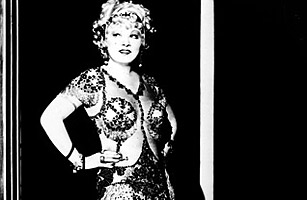
Cinema Czar Hays, a former Postmaster General, put the stricter film code into effect.
July 1, 1934
"Goodness, what beautiful diamonds!" a hatcheck girl says to Mae West, who purrs, "Goodness had nothin' to do with it, dearie." That line, from West's 1932 Night After Night, embodied the saucy spirit of early talkies. Now that Hollywood could speak, it did so in the tart cadences of fast-talking men and faster women. This freedom created fresh stars (James Cagney, Barbara Stanwyck, Jean Harlow) and a sexual impudence that riled the burghers of propriety.
In 1934 the potent Roman Catholic lobby formed the Legion of Decency to rate films. Soon after, Will Hays, the industry's political and moral arbiter, called on Joseph Breen, a prominent Catholic, to enforce a rigorous production code. Studios rushed to sanitize some projects (West got married at the end of Belle of the Nineties) and dump others (MGM had to wait 12 years to film The Postman Always Rings Twice). Moviegoers that summer Sunday may have been shocked by the sudden absence of shocking dialogue and situations.
But filmmakers evolved a new "code," one that traded starkness for subtlety. Audiences quickly learned this covert language in which a woman's knowing smile was its own double entendre, and a kiss was never just a kiss.